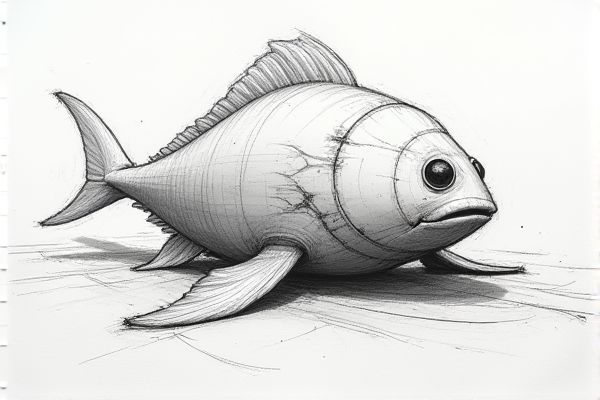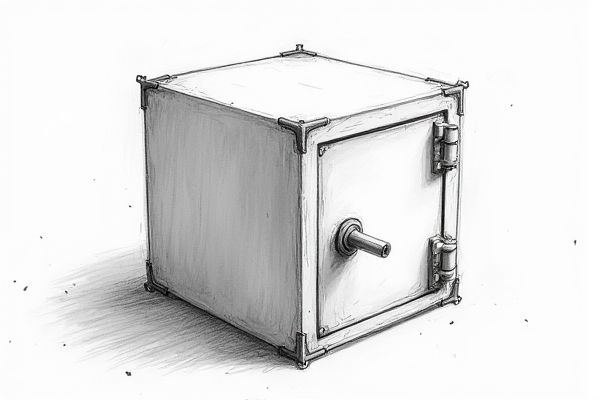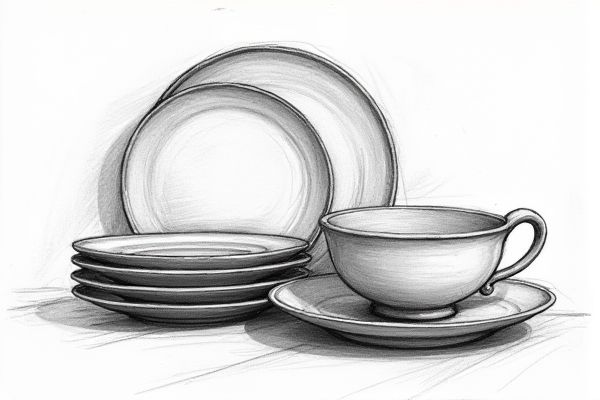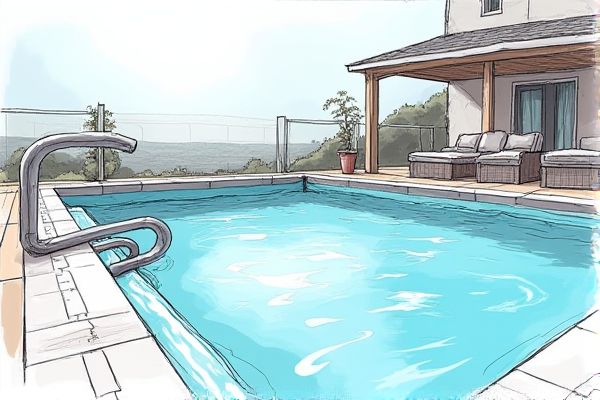In a world where personal hygiene has taken center stage, the choice of soap becomes an essential part of our daily routine. With countless brands flooding the market, each boasting unique benefits and fragrances, finding the best sabun can be quite a task. From nourishing organic ingredients to luxurious scents that linger, there are brands that cater to every need and preference. Interested in discovering the top brands that promise quality and satisfaction? Read on to explore our curated list below.

Illustration of sabun
Best brands of sabun in 2025
Dove
Dove is a leading brand in the personal care industry, particularly renowned for its dominance in the bar soap category, where it holds a significant 21.5% global market share. Launched in 1957, Dove's innovative moisturizing formula has set it apart, with the brand expanding its product line to include body washes, deodorants, and hair care products. Dove's "Real Beauty" campaign, initiated in 2004, has been instrumental in its success, resonating with consumers and driving sales from $2.5 billion to $4 billion over a decade. The brand is now sold in over 80 countries and is the No.1 dermatologist-recommended brand in several regions. Dove's commitment to inclusivity, social causes, and high-quality products has solidified its position as a market leader. For more insights into Dove's market share and growth, visit their detailed analysis.
Lux
Lux, a renowned brand from Hindustan Unilever, is a leading producer of beauty soaps, holding a significant market share. In India, Lux maintained a 13% all-India value market share as of 2018, although it has faced competition from Santoor, which has been gaining ground. Globally, the soap market, which includes Lux, is projected to grow at a compound annual growth rate of 5.0% from 2019 to 2027, reaching $55.29 billion. Lux is popular for its luxurious feel and diverse fragrances, and it remains a top priority for many consumers, especially in Bangladesh where it holds around 50% market share in the bathing soap segment. Despite some market share losses, Lux continues to be a prominent brand in the soap industry.
Ivory
Ivory, a brand trusted for over 140 years, is renowned for its 99.44% pure soap, which is free of dyes and heavy perfumes, making it gentle enough for the whole family, including children aged 3 and up. Dermatologist tested and made with plant-based cleansers since 2024, Ivory soap has maintained its commitment to purity and quality. With a significant presence in the market, Ivory holds a 3.4% share of the U.S. bar soap market and generated $112 million in global revenues in 2013. The brand is part of Procter & Gamble, a global leader in the fast-moving consumer goods industry. Ivory's original scent and pure ingredients have made it a staple in many households. For more details about their gentle bar soap original scent, visit their website.
Dial
Dial, a prominent brand under Henkel AG & Co KGaA, has demonstrated significant growth in the soap market, with a 14.6% increase in sales to $100.4 million in the third quarter and a 13.3% increase to $294.5 million over nine months. As the second largest brand by value in the US soap industry, Dial liquid, bar, and body wash products account for about 26.2% of overall sales. The brand's strong performance is part of the broader soap industry, which recorded a historical CAGR of 3.92% between 2017 and 2020. Dial's success is a testament to its market presence and consumer preference. The brand continues to be a major player in the US soap market, alongside other leading brands like Dove and Irish Spring. For more detailed insights, you can read about Dial's sales performance.
Nivea
NIVEA, one of the world's largest skin care brands, achieved its best performance of the century in 2023, with organic sales growth of 16.2% and nominal sales surpassing EUR5 billion for the first time. This success was driven by double-digit growth in every region and category, including strong performances in NIVEA Deo, SUN, Body Care, Face, and Lip categories. The brand's globalized operating model, innovative products like the patented ingredient LUMINOUS630, and a robust e-commerce business contributed significantly to this growth. NIVEA's market share gains were particularly notable in Emerging Markets such as Mexico, Chile, and India. The brand's commitment to innovation is supported by a global team of 1,290 scientists and over 1,700 studies in R&D each year. For more details on their products and achievements, visit their official website.
Pears
Pears, a renowned British brand, has been a leader in the soap industry since its inception in 1807 by Andrew Pears. It was the world's first mass-market translucent soap and has maintained its quality and innovation over the years. Under Unilever's ownership since 1917, Pears soap is now manufactured in India by Hindustan Unilever and is popular in several countries, including the UK, India, and Sri Lanka. Despite market shifts, Pears retains a significant presence, particularly in the premium category, with a market share of around 1.5% in India. The soap is known for its unique manufacturing process and high-quality glycerin content. For more insights into this historic brand, you can visit the Pears soap Wikipedia page.
Olay
Olay, a renowned American skincare brand owned by Procter & Gamble, is not specifically known for producing soap (sabun), but it is a leading provider of various skincare products. With a brand awareness of 90% among face care users in the United States, Olay is used by 28% of these users, and 23% are likely to use it again, indicating strong loyalty. For more information, explore their array of skincare products.
Cetaphil
Cetaphil is a leading brand in the skincare industry, renowned for its gentle and effective products, particularly its mild, soap-free cleansers. As of 2020, Cetaphil held a significant 15% market share in the United States, reflecting its strong presence and popularity among consumers. The brand has seen continuous growth, especially during the COVID-19 pandemic, and is highly recommended by dermatologists, with a long history dating back to its inception in 1947. Cetaphil's products are available in over 70 countries and are favored by Gen Z consumers, who prioritize trustworthy and dermatologist-recommended skincare solutions. The brand's commitment to science-led skincare and its accessible price points have further enhanced its market position.
Palmolive
Palmolive, a renowned brand under Colgate-Palmolive, is a leading producer of high-quality soaps, including liquid hand soaps and bathing bars. The brand has been instrumental in driving market growth, particularly in the Asia Pacific region, which held a 38.14% market share in 2022. Palmolive's innovative products, such as the Softsoap Naturals Moisturizing Body Wash, have revolutionized the moisturizing segment by incorporating natural ingredients like milk and honey. The brand's commitment to sustainability is also notable, as seen in the launch of Softsoap foaming handwash tablets and recyclable aluminum bottles, reducing plastic usage by 71% compared to traditional bottles. For more details about their range of products, visit the Colgate-Palmolive website.
Yardley
Yardley, established in 1770, is one of the oldest and most renowned cosmetics brands, particularly noted for its high-quality soaps and personal care products. The brand, now owned by Wipro since 2009, has a significant presence in various markets, including India where it has achieved sales of over Rs 350 crore. Yardley's English Lavender soap, launched in 1873, remains a signature product, using the specially grown Lavandula angustifolia variety. Despite some ethical concerns, Yardley has managed to maintain a strong market share, especially in regions like Kerala and Tamil Nadu. The brand's products are widely available in modern trade outlets, with a market share of up to 40% in some categories. For more details, you can visit Yardley's brand directory page.
















Leave a Reply
Your email address will not be published.